The Tier List will analyze the best and worst Vocations (classes) in Dragon’s Dogma 2 based on their damage output, survivability, utility, and flexibility.
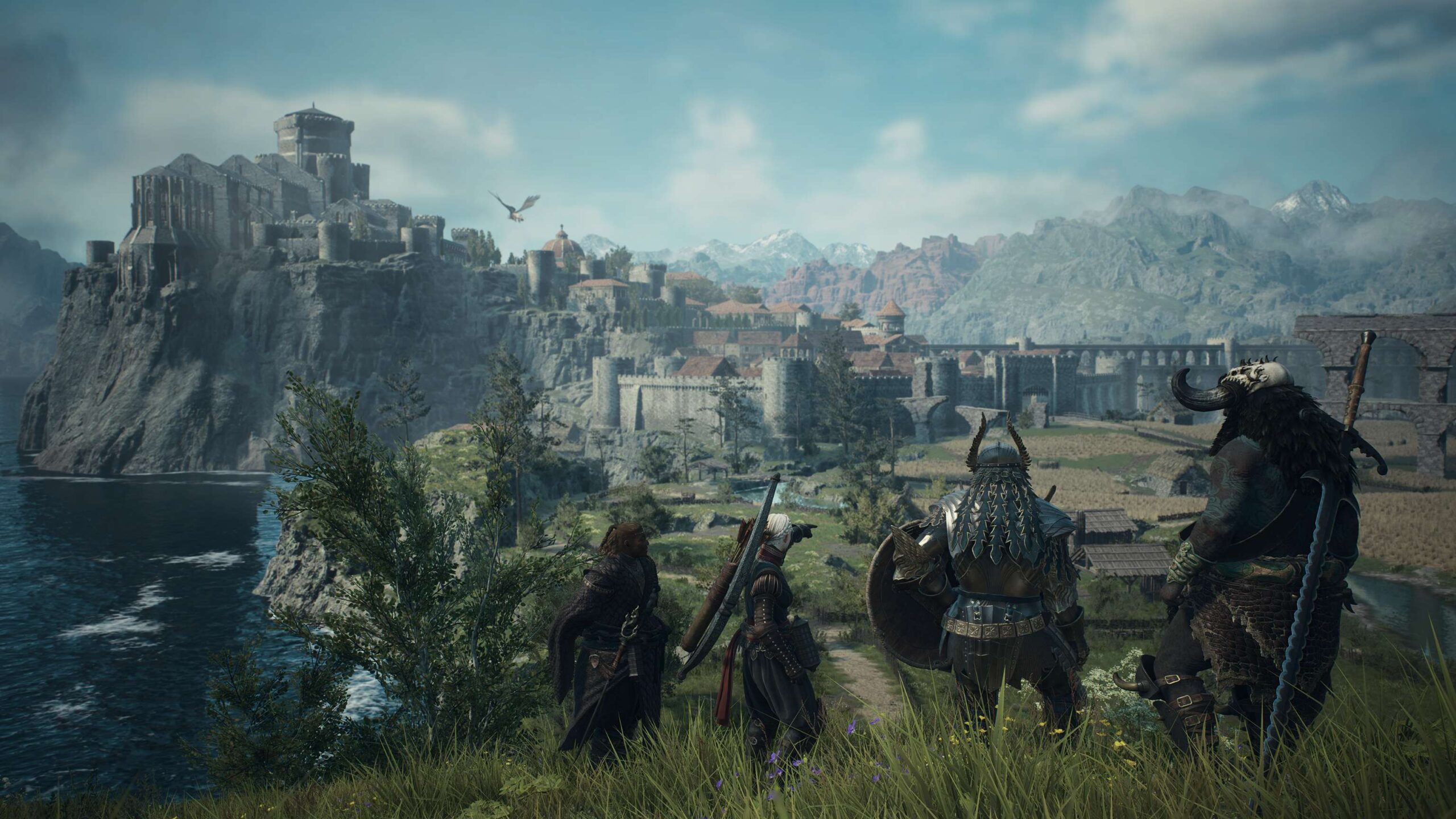
In this Dragon’s Dogma 2 Vocations Tier List, we will explore and rank the best and worst playstyles based on their overall effectiveness and versatility. The game’s vocation system allows players to choose from various options, including melee damage, ranged, spell caster, support, and more. The goal is to provide an overview of the relative power levels of each class, allowing you to make informed decisions when creating your party composition.
After playing all the vocations, this guide has been updated for the patch 1 version of Dragon’s Dogma 2 post-launch.
Dragon’s Dogma 2 Vocations Tier List
The best Dragon’s Dogma 2 Vocations (Classes) are:
- S Tier – Magick Archer, Warfarer
- A Tier – Mystic Spearhand, Sorcerer, Warrior
- B Tier – Fighter, Archer, Mage
- C Tier – Thief, Trickster
What is The Best Vocation in Dragon’s Dogma 2?
The Magick Archer is the strongest vocation in Dragon’s Dogma 2 due to its damage, support, and one-shot boss potential. The Magick Archer Hybrid Vocation can use Martyr’s Bolt to one-shot any boss using their health to amplify damage. The second most powerful is the Warfarer vocation because you can combine any two vocations. The Mystic Spearhand is the third best for melee-specific players due to hit mobility, range, and damage. The best vocation for Pawns and not Arisen-based players is the Sorcerer. The Sorcerer advanced class, used with a Pawn, provides area-based damage and crowd control at range.
Here is a tier list of all Dragon’s Dogma 2 Vocations Ranked:
| List Position | Vocation | Ranking |
|---|---|---|
| 1 | Magick Archer | S+ |
| 2 | Warfarer | S |
| 3 | Mystic Spearhand | A+ |
| 4 | Sorcerer | A |
| 5 | Warrior | A- |
| 7 | Fighter | B+ |
| 8 | Archer | B |
| 9 | Mage | B |
| 11 | Thief | C |
| 12 | Trickster | C+ |
Trickster (C+ Tier)
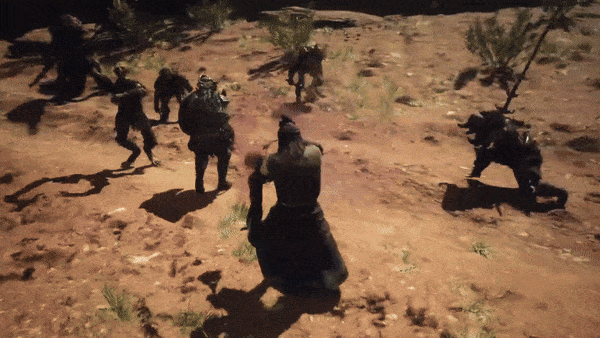
The Trickster is a vocation focused on deception, crowd control, and using a Censor and smoke to trick enemies. It is designed for a pure supporter tank class and lacks the damage of other vocations. This vocation is unlocked much later in the game and isn’t a good fit, considering the Fighter or Warrior for tanks that can do damage and just not taunt enemies.
Trickster Vocation Pros:
- Support Spells: The Trickster vocation excels in providing invaluable support to allies through a diverse array of spells, offering buffs, debuffs, and utility abilities.
- Crowd Control: Disrupt enemies, stun, pull, and disorient one or more targets.
- Scouting Abilities: Trickster possesses unique scouting abilities that gather valuable information about enemy positions.
Trickster Vocation Cons:
- Minor Damage: the Trickster sacrifices raw damage in exchange for support and utility.
- Difficult Gameplay: the vocation requires a deep understanding of mechanics, crowd control, and positioning, making it challenging to play.
- One Role: you’re forced only to tank and stun enemies while your pawns do damage and have fun.

If you’re looking to pick a vocation for your Arisen that does nothing but support your party, Trickster is a decent choice. Outside of that, it’s weak damage and survivability and is not recommended beyond niche support. Moving on to another C tier in our Dragon’s Dogma 2 Best Vocations Classes Tier List.
Thief (C Tier)
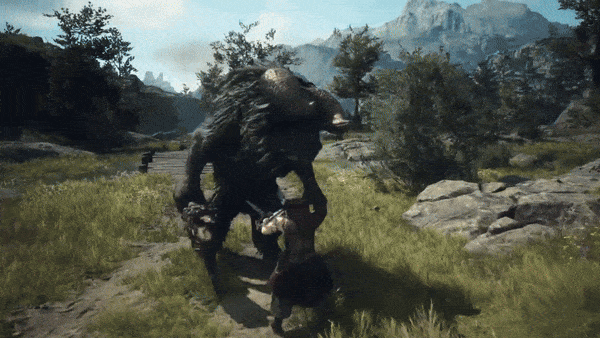
The Thief vocation emphasizes rear attacks, movement, and burst damage to one target at a time. This basic vocation doesn’t have the area damage of others but can deliver devastating single-target damage. The Thief is great as a pawn with a team lacking boss damage. The thief vocation loves to jump on top of enemies and punish them with damage.
Thief Vocation Pros:
- Excellent Mobility: The Thief vocation excels in agility and nimbleness, allowing swift and fluid movement in and out of combat.
- Weak Point Exploitation: the Thief exploits enemies’ weak points, inflicting devastating precision strikes.
- Single-Target Damage: designed for maximum individual enemy damage in melee range.
Thief Vocation Cons:
- Weak Area Damage: The Thief vocation struggles to deal significant damage to multiple adversaries simultaneously.
- No Range: it lacks reliable ranged attacks or abilities, requiring close proximity to enemies to engage in combat effectively.
- Lower Defensives: the Thief generally possesses lower defensive capabilities than heavier armored vocations, making you more susceptible to damage.

The Thief makes a great Pawn because it can jump on large enemies and cloak. This is also a fun starter basic vocation as you level. What holds the Thief back is a lack of support spells or buffs, weak area damage, and lower survivability. However, this is a fun basic vocation if you want a skill like Shadow Cloak to render you partially invisible.
Mage (B Tier)
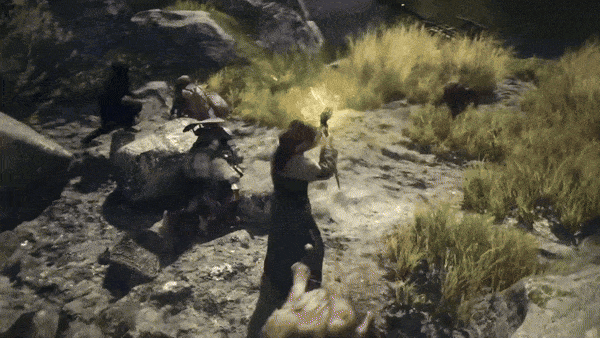
The mage’s strength is their skills to heal and buff the party. Unlike Dragon’s Dogma 1, healing isn’t widely available, making the Mage a good Pawn vocation. However, players (Arisen) will want to opt for the Sorcerer, who adds even more damage and power to their spellcasting.
Mage Vocation Pros:
- Healing Spell: You can heal and support allies during intense battles, which is rare in Dragon’s Dogma 2 (DD2).
- Weapon Elemental Buff: the Mage can enchant allies’ weapons with elemental properties, adding damage to your party.
- Increase Party Speed: one skill allows you to boost your party’s speed in addition to healing.
Mage Vocation Cons:
- Weak Survivability: Mages typically possess lower physical defenses and health than other vocations, making survivability more difficult.
- Vulnerable While Casting: Casting powerful spells takes a long time, and you are vulnerable to damage and interruptions.
- Positioning: This vocation requires knowledge of positioning and time and can be difficult for a new Arisen player.
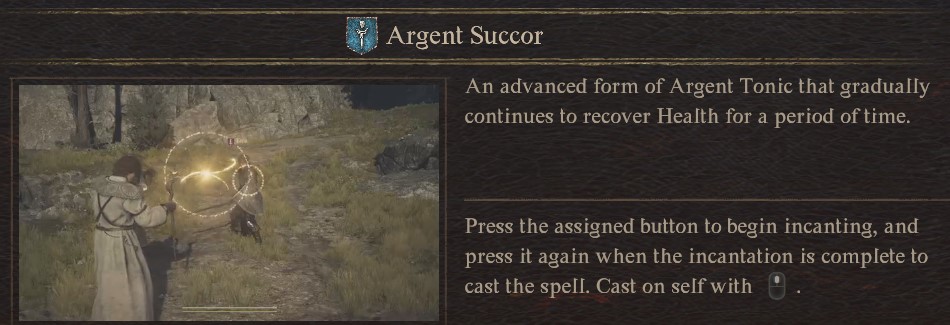
The Mage is mainly focused on pure support, making it an ideal choice for Pawns, not players. Arisen player-controlled characters will want to use Sorcerer for pure damage. The Mage is simply a weaker version of the Sorcerer. However, it is highly recommended that a Pawn use Mage skills to buff and heal.
Archer (B Tier)
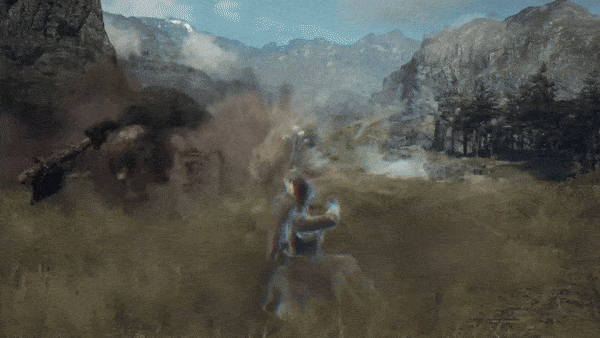
The Archer is your typical bow weapon user with a single target and area damage. This basic vocation is great at damaging, keeping distance, and crowd-controlling enemies. However, this vocation becomes less effective as the game unfolds and the Magick Archer becomes available at higher levels.
Archer Vocation Pros:
- High Damage Output: the Archer vocation boasts impressive damage potential, delivering damage at range.
- Increased Mobility: The archer enjoys enhanced mobility compared to heavier vocations because of its focus on agility and ranged combat.
- Range Crowd-Control: the Archer excels in crowd control from a distance, utilizing its ranged arsenal to hinder or stun enemies.
Archer Vocation Cons:
- Lower Survivability: Despite its offensive prowess, the Archer sacrifices survivability for increased mobility and damage output.
- No Spellcasting: Unlike other vocations, the Archer lacks access to magical spells or abilities, limiting its utility in providing support or additional utility.
- Locked into Range: The Archer’s effectiveness is limited to ranged combat, as its skills and abilities are optimized for attacking from a distance.

The Archer is a weaker version of the Magik Archer’s advanced vocation. However, you can use this vocation (class) with a Pawn and provide good range damage and crowd control. What makes the vocation interesting is the use of elemental arrows. This will add a ton of damage and be a consumable item. There’s just an improved version of the ranged bow user later on. Moving on in our Dragon’s Dogma 2 best Vocations (classes) tier list, we discuss the Fighter.
Fighter (B+ Tier)
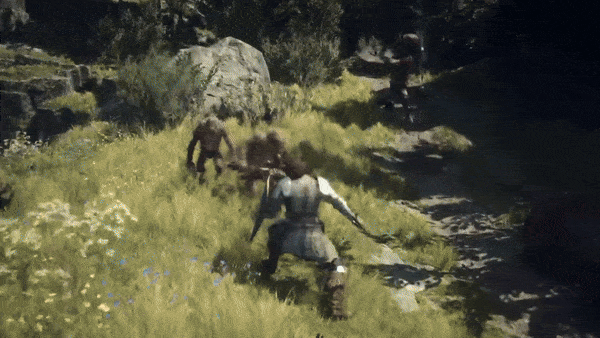
The Fighter vocation is intended to be your “tank” with skills that can taunt and get enemies’ attention. This vocation is perfect for Pawns, allowing the player (Arisen) to focus on damage without being harmed. However, the gameplay isn’t that fun beyond early levels, when it’s effective due to survival. Warrior advanced vocation retains some of the strengths with much more damage and better gameplay.
Fighter Vocation Pros:
- Formidable Defenses: The Fighter vocation excels in defense, boasting unmatched resilience and the ability to withstand enemy attacks easily.
- Effective Crowd Control: Armed with powerful and sweeping attacks, the Fighter is adept at controlling groups of enemies.
- Taunt Mechanism: The fighter can utilize its taunting abilities to draw enemies’ attention to itself, diverting their focus away from more vulnerable party members.
Fighter Vocation Cons:
- Lower Damage Output: Despite its defensive prowess, the Fighter typically sacrifices damage output compared to other offensive-focused vocations.
- Slower Movement: Due to its emphasis on heavy armor and defensive capabilities, the Fighter’s movement speed is notably slower than lighter vocations.
- Weakness at Range: The Fighter’s effectiveness diminishes significantly at range, as its arsenal primarily consists of close-quarters skills.
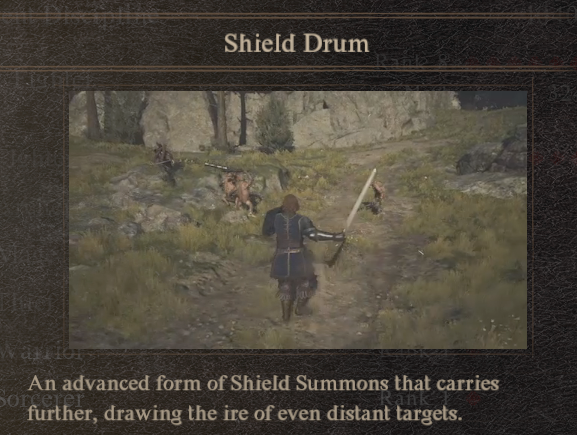
Nearly all parties should use the Fighter with a Pawn to gain the enemy’s attention. The Fighter is a weaker Warrior, which can also taunt but has additional damage capabilities. Moreover, the Fighter can be helpful to take early, especially when learning DD2 and its complex combat mechanics.
Warrior (A- Tier)
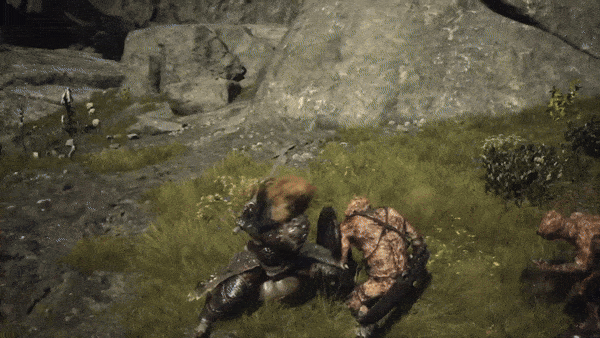
The Warrior is a powerful melee damage dealer that can be used by Pawns or players (Arisen). The class’s strength is damage to both single target and AoE, alongside crowd control. Moreover, the Warrior can “taunt” and support the party. Consider this an upgraded and aggressive Fighter vocation.
Warrior Vocation Pros:
- Damage Output: The Warrior vocation boasts unparalleled raw power, capable of delivering devastating blows that crush enemies with sheer force.
- Crowd Control: With its sweeping attacks and powerful strikes, the Warrior controls groups of adversaries.
- Versatile Damage Options: the Warrior skills excel in area-of-effect damage to groups or focusing on single-target assaults.
Warrior Vocation Cons:
- Lengthy Attack Animations: The Warrior’s devastating strikes have the drawback of longer animation times, leaving it momentarily vulnerable to counterattacks while executing its powerful abilities.
- Limited Mobility: The Warrior’s prowess in combat is offset by its slower movement speed and agility, hindering its ability to navigate the battlefield swiftly.
- Weakness at Range: Despite its effectiveness in close-quarters combat, the Warrior struggles when confronted with enemies at a distance.

The Warrior has enhanced damage at the expense of long animations. Thus, you must carefully time your attacks and deal with lack of range damage. However, this vocation is powerful for Pawns and players like them. Moving along to another A-tier class on our Dragon’s Dogma 2 best Vocations List, it’s the Sorcerer!
Sorcerer (A Tier)
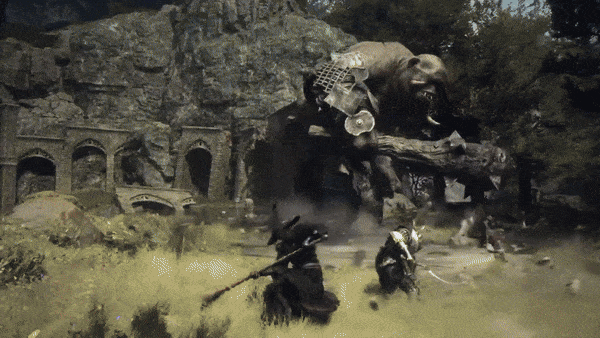
The Sorcerer vocation in Dragon’s Dogma 2 is a strong spellcaster and damage dealer. Combining spells with powerful elemental effects, the Sorcerer can deal massive damage and provide support healing. Consider this advanced vocation a better Mage, which Pawns or Arisen can use.
Sorcerer Vocation Pros:
- Unmatched Damage Potential: The Sorcerer’s vocation is supreme in dealing devastating magical damage, capable of unleashing powerful spells that decimate foes with unmatched potency on the battlefield.
- Extended Range Superiority: With access to a vast array of long-range spells, the Sorcerer can engage enemies from afar, maintaining a safe distance.
- Self-Sustenance Through Healing: Despite its focus on offensive capabilities, the Sorcerer possesses innate self-healing abilities, enabling it to recover health during combat.
Sorcerer Vocation Cons:
- Prolonged Cast Times: One drawback of the Sorcerer’s vocation is its reliance on spells with extended casting durations.
- Vulnerability in Close Combat: While formidable at range, the Sorcerer’s effectiveness diminishes significantly in close-quarters combat, where it struggles to defend itself.
- Limited Support Spell Arsenal: Unlike other magical vocations, the Sorcerer prioritizes offensive magic over supportive spells, offering fewer options for buffing allies or debuffing enemies.
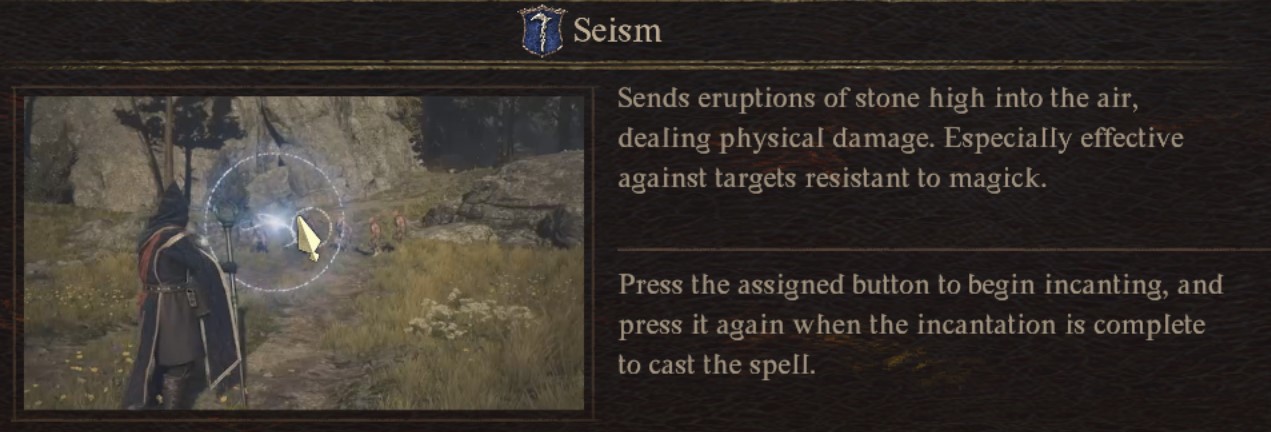
The downside of The Sorcerer is the long animations and vulnerability while casting. However, players can design their teams to have Fighters, Warriors, and Archers provide crowd control and aggro, freeing you up for the damage. Consider the Sorcerer the best choice if you want a powerful spellcasting vocation in Dragon’s Dogma 2.
Mystic Spearhand (A+ Tier)
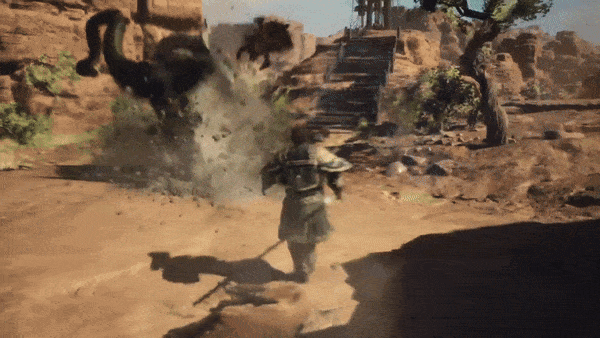
The best melee vocation in Dragon’s Dogma 2 is Mystic Spearhand because it blends the best skills for offensive and defensive capabilities in one class. The Mystic Spearhand can deal damage at any range, has incredible mobility, and controls multiple enemies simultaneously. A benefit of the Mystic Spearhand can be unlocked within the first few hours for new players!
Mystic Spearhand Vocation Pros:
- Versatile Range: whether up close in melee combat or from a distance with spear-based attacks, the Mystic Spearhand adapts to any combat situation.
- Balanced Abilities: This vocation offers a well-rounded skill set, blending offensive and defensive capabilities effectively to handle different encounters easily.
- Crowd Control Mastery: Mystic Spearhand shines in controlling and managing groups of enemies, utilizing its arsenal of sweeping attacks and area-of-effect abilities to maintain control over multiple foes.
Mystic Spearhand Vocation Cons:
- Master of None: While proficient in various combat styles, Mystic Spearhand lacks the specialized expertise that other vocations may offer in specific areas.
- Limited Group Utility: Despite its effectiveness in individual combat, Mystic Spearhand lacks significant utility in supporting or enhancing allies’ abilities in group settings.
- Boss Damage: It doesn’t burn bosses like the Magick Archer, though nothing does in DD2.
The argument against the Mystic Spearhand is that it’s the master of none. This means that the Sorcerer is a better spellcaster and the Magick Archer a better damage dealer. While that is true, it’s a powerful class with good versatility, though the Warfarer is the most versatile build in DD2.
Warfarer (S Tier)
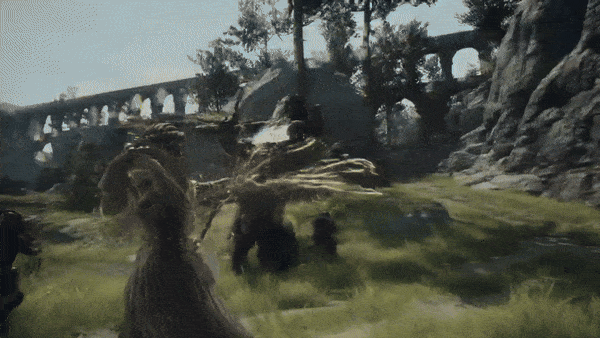
The Warfarer is a unique vocation that allows players to use any weapon type and combination. Thus, you can combine two of your previous vocations and pick the best skills for each. The Warfarer is unlocked near the end of DD2, so expect unlocking and leveling with a new game plus. It’s one of the best vocations because you can pick two vocation weapons and swap seamlessly.
Warfarer Vocation Pros:
- Weapon Freedom: allowing players to wield various weapons such as swords, axes, maces, bows, and more, catering to diverse playstyles and combat preferences.
- Customizable Build: the Warfarer allows players to craft unique and personalized builds tailored to their preferred playstyle.
- Most Versatile of All: the Warfarer emerges as the most adaptable and flexible vocation in Dragon’s Dogma 2.
Warfarer Vocation Cons:
- Lower Stats: Despite its versatility, the Warfarer may suffer slightly lower base statistics than more specialized vocations, potentially impacting overall effectiveness.
- Complex Gameplay: Mastering the intricacies of the Warfarer vocation requires a deep understanding of various mechanics.
- Not Beginner Friendly: Due to its complexity and reliance on player knowledge of game mechanics, the Warfarer vocation may not be the most suitable choice for beginners.
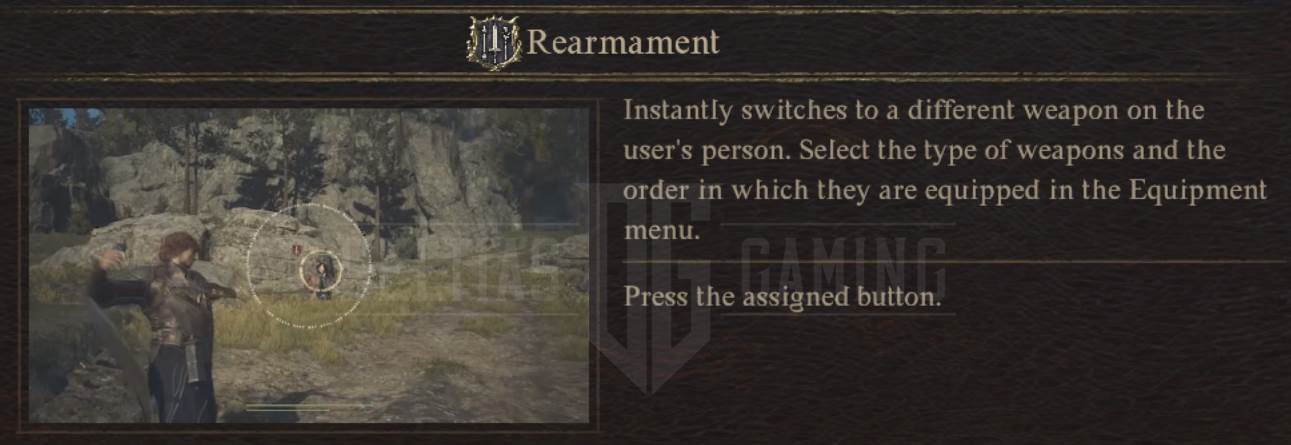
The Warfarer’s ability to use any weapon choices gives it the most build customization possible. The downside of the vocation is you need to beat the game first to unlock it, and the Mystic Spearhand is available within the first few hours. After beating the game, pick up the Warfarer and experiment with endless Dragon’s Dogma 2 builds.
Magick Archer (S+ Tier)
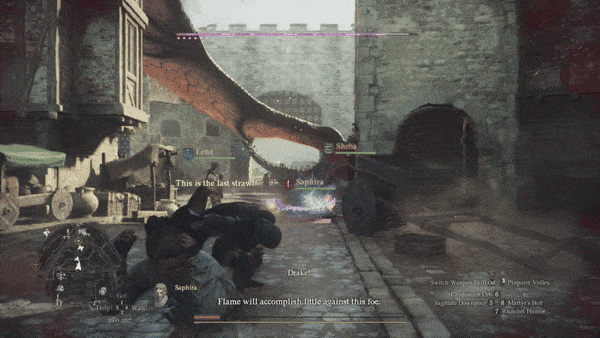
The Magik Archer is the best overall vocation (class) in Dragon’s Dogma 2 due to its one-shot potential. You can use Marty’s Bolt skill to lower your max health and effectively kill a dragon within 5 seconds. You may have to rest afterward long, but no other class has this much damage and utility, making it the best. You blend range damage, spellcasting, and support skills in the best overall build in DD2. However, new players will take a while to unlock the Magick Archer, but for the end game and new game plus, it’s the best.
Magick Archer Vocation Pros:
- Versatile Support Spells: The Magik Archer vocation provides invaluable support to allies through various spells, offering buffs, debuffs, and utility skills.
- Effective Range Damage: the Magik Archer specializes in dealing potent ranged damage from a distance, leveraging magical projectiles and precision bow attacks.
- Healing Abilities: Besides its offensive capabilities, the Magik Archer possesses healing spells that can restore health to allies in need.
Magick Archer Vocation Cons:
- Vulnerable to Melee: The Magik Archer’s mobility is tied to keep enemies at a distance, leaving it vulnerable to close-quarters assaults.
- Unlocked: This vocation takes much longer for newer players to unlock.
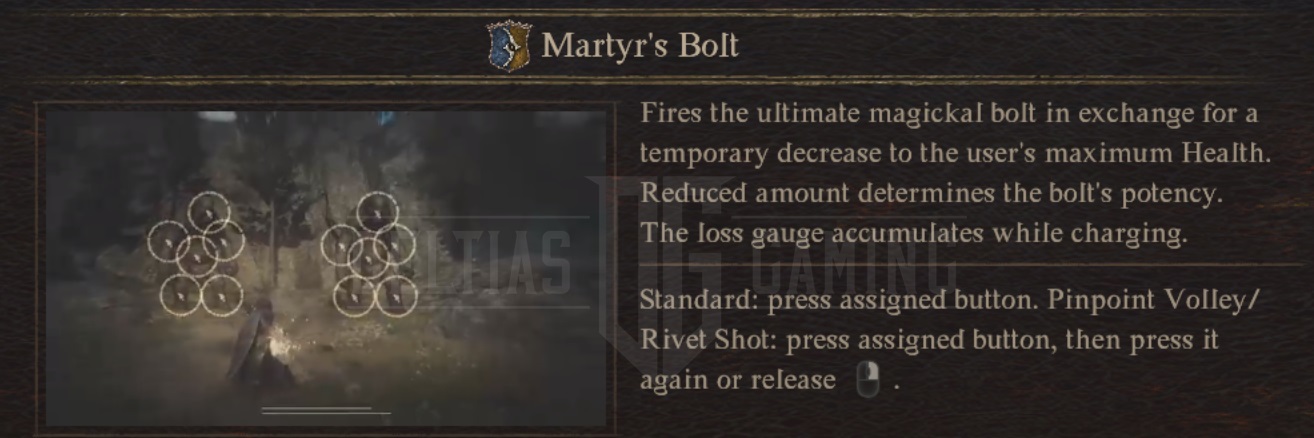
If you want the most damage, boss-killing potential, and the easiest class to beat the game, choose the Magick Archer. You won’t regret it.
What Vocation Should You Pick in Dragon’s Dogma 2?
The best-starting vocation for the Arisen is the Fighter due to its high survivability, while the Mage is the best for Pawns because of its healing capabilities. In Dragon’s Dogma 2, healing is limited, and like any traditional RPG, you want a sturdy front-line Fighter with a supporting character as the foundation of your party. Moreover, Dragon’s Dogma 2 has a max party size of four. Thus, you can round out your group with a range Archer or another melee damage-dealing thief.
In Dragon’s Dogma 2, you can change your vocation and pick an Advanced and/or Hybrid Vocation later in the game. While adventuring, you’ll come across vocation maister’s who have honed their chosen vocation to its pinnacle. By questing and helping those teachers, you can unlock access to their vocation. They might also bestow unique tomes with more advanced skills, known as “maister’s teachings.”
Looking For More About Dragon’s Dogma 2?
Thank you for reading Dragon’s Dogma 2 Best Vocations (Classes): Tier List Guide. We provide the latest news and create guides for Dragon’s Dogma 2, Enshrouded, and Baldur’s Gate 3. Also, watch me play games on Twitch or visit my YouTube channel!
 Reddit
Reddit
 Email
Email


